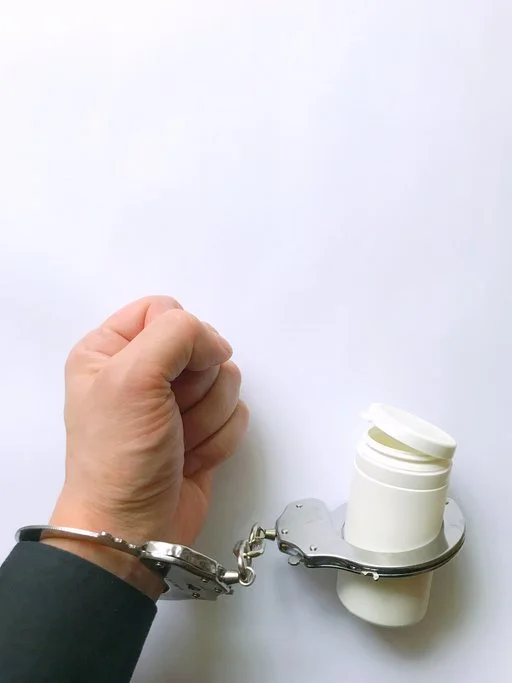Charged With Drug Possession in Texas? Here’s What You Need to Know
By Thom Nisbet
It might seem like a minor offense—but in Texas, a simple drug possession charge can follow you for life. Whether it’s a small amount of marijuana in your glove box or a prescription pill in the wrong container, being caught with a controlled substance can mean more than just a fine. It can cost you your job, your driver’s license, your ability to get housing, or even your freedom.
At Christian, Nisbet & Casillas, we’ve defended clients facing both misdemeanor and felony drug possession charges across Bexar County and the surrounding areas. And while every case is different, one thing stays the same: the stakes are higher than most people realize. In this article, we’ll walk you through what Texas law says about possession, how recent changes have affected enforcement, and what you can do right now to fight the charges.
Texas Drug Possession Laws: An Overview
Under the Texas Controlled Substances Act, it’s a crime to knowingly possess a controlled substance—without a valid prescription. This includes street drugs like cocaine, heroin, and meth—but also common prescription medications like Xanax, Oxycodone, and Adderall.
Charges are broken down by Penalty Group and quantity:
Penalty Group 1: Cocaine, heroin, methamphetamine, fentanyl
Penalty Group 2: MDMA (ecstasy), PCP, synthetic THC
Penalty Group 3: Valium, Xanax, Ritalin
Penalty Group 4: Codeine, morphine in lower concentrations
Marijuana: Now separated under its own category
Possessing even trace amounts of certain substances—especially those in Group 1—can trigger felony charges, even if it’s your first offense.
Penalties: Misdemeanor vs. Felony
Misdemeanor possession typically involves:
Less than 2 ounces of marijuana
Certain prescription pills without a script
Penalty Group 3 or 4 substances in small quantities
Consequences can include:
Up to 1 year in jail
Up to $4,000 in fines
Suspension of your driver’s license
Felony possession includes:
Cocaine, heroin, meth, fentanyl—any amount
Larger amounts of lower-penalty substances
Marijuana over 4 ounces
Penalties range from 6 months in state jail to life in prison, depending on quantity and prior convictions.
What’s New in Texas Drug Law?
Over the past few years, Texas has taken a mixed approach—strengthening penalties in some areas while easing up on others.
1. Low-Level Marijuana Possession: Still Illegal in Most Counties
Despite national trends, marijuana remains illegal in Texas, and possession of even small amounts is still a criminal offense unless you’re in a county with a cite-and-release or diversion program. San Antonio does have such a program, but you must meet strict criteria to qualify—and the discretion still lies with law enforcement.
2. Fentanyl Laws Get Tougher (2023–2024)
In response to the spike in overdose deaths, Texas now treats fentanyl possession far more severely. Even less than 1 gram can result in a felony charge, and new statutes allow murder charges if a fatal overdose can be traced back to the person who provided the drug.
If fentanyl is involved in your case, you need legal representation immediately—prosecutors are under pressure to make examples.
3. Good Samaritan Law (Updated 2021)
There’s now limited protection for people who call 911 during an overdose—but only if you meet all the conditions. Many people misunderstand this protection and end up charged anyway. If you were arrested after calling for help, your defense may hinge on how that interaction was handled.
How We Defend Drug Possession Charges
At Christian, Nisbet & Casillas, we tailor our defense to the facts of your case. Here’s how we typically build your defense:
1. Challenge the Stop and Search
Was the stop legal? Did officers have probable cause to search you, your vehicle, or your home? If not, any evidence they collected may be thrown out—ending the case entirely.
2. Question Possession
Texas law requires the State to prove you knowingly possessed the drugs. If the substance was found in a shared space—like a car or apartment—the State may not be able to prove it was yours.
3. Test the Substance
Sometimes what’s believed to be a controlled substance turns out to be something else—or improperly tested. If lab results are incomplete, inconsistent, or improperly handled, we use that to attack the prosecution’s case.
4. Explore Diversion or Reduction
If it’s your first offense or a low-quantity case, we may be able to get you into a pretrial diversion program, or negotiate a reduced charge that won’t wreck your future.
5. Protect Your Record
Whenever possible, we fight for dismissals or deferred adjudication—so you can be eligible for record sealing (nondisclosure) down the line. We think long-term, not just about your court date.
What to Do If You’re Charged
Don’t talk to the police without a lawyer—no matter what they promise.
Don’t assume you’re guilty just because drugs were found nearby.
Don’t miss your court date—failure to appear can add more charges and destroy your credibility.
Do call a defense attorney immediately—before you agree to anything.
Final Thoughts
A drug possession charge may seem like something you can handle later—but in Texas, it can follow you for years. Employers, landlords, and even schools check records, and a conviction for possession—even a misdemeanor—can be a barrier you never saw coming.
We believe in second chances. We believe not every case should end in a conviction. And we believe that the system shouldn’t be allowed to crush someone for one bad choice—or one wrong place, wrong time moment.
When your future’s at risk… we’re that call.

